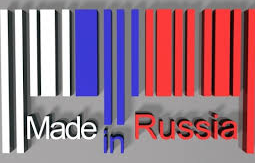 The head of the working group of the Coordination Council of Non-Profit Organizations of Russia for Food Quality Control Nikolay Maltsev expressed the opinion that production volumes in Russia are achieved artificially, and food imports into the country have declined due to the technologically simplest products. At the same time, many of them border on counterfeit. Earlier, the press service of the Ministry of Agriculture of Russia reported that food imports over the past five years have declined by more than 30%.
The head of the working group of the Coordination Council of Non-Profit Organizations of Russia for Food Quality Control Nikolay Maltsev expressed the opinion that production volumes in Russia are achieved artificially, and food imports into the country have declined due to the technologically simplest products. At the same time, many of them border on counterfeit. Earlier, the press service of the Ministry of Agriculture of Russia reported that food imports over the past five years have declined by more than 30%.
The expert noted that often instead of creating a basis from which the volume of production will subsequently grow, the country immediately creates a volume:
"We have been told about the growth of production of pigs and poultry. We really learned how to skillfully pump up pigs and chickens with growth hormones. During Soviet times, the broiler added 21 grams per day, now it is 45 grams. This suggests that, in fact, the limitations in 'chemistry' are removed. But volumes have been achieved that allow us to proudly declare import substitution."
According to Nikolay Maltsev, milk production is also increased by artificial means; unscrupulous manufacturers add technical palm oil to it, and dairy products, in which the fatty acid profile corresponds to pure milk fat, are almost never found on the market.
"Import substitution took place at the expense of the most primitive technologies of the food industry, bordering on counterfeit goods. As soon as we touch the more technologically advanced segments, such as the production of hard cheeses, it turns out that we could not replace anything properly. This is, undoubtedly, the wrong economic model of our state, when it is possible careless import substitution," Maltsev concluded.
Based on piginfo.ru.

